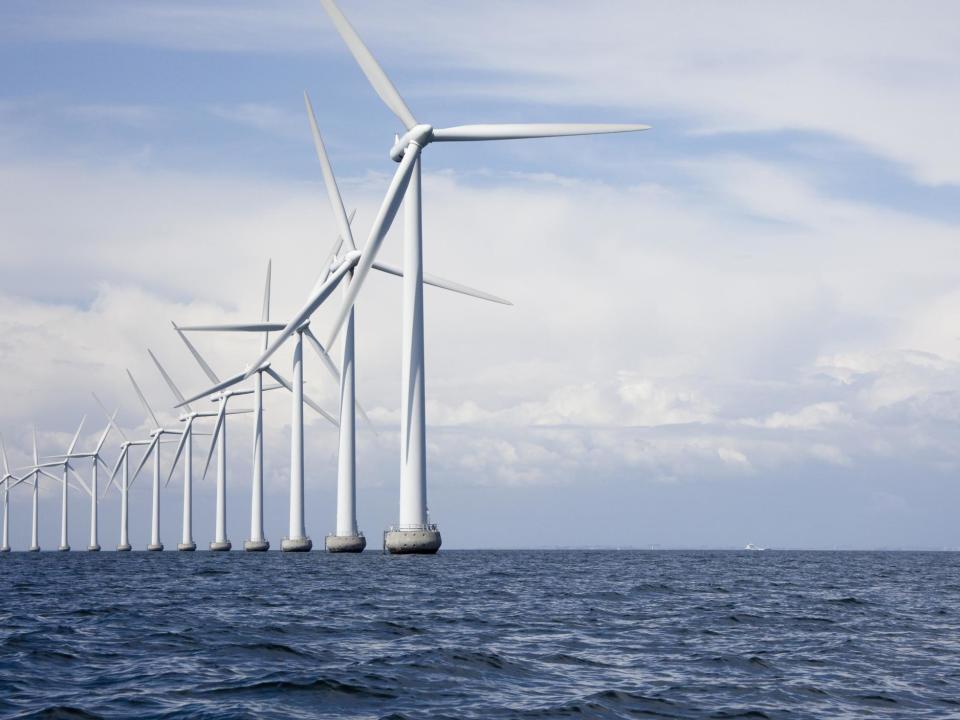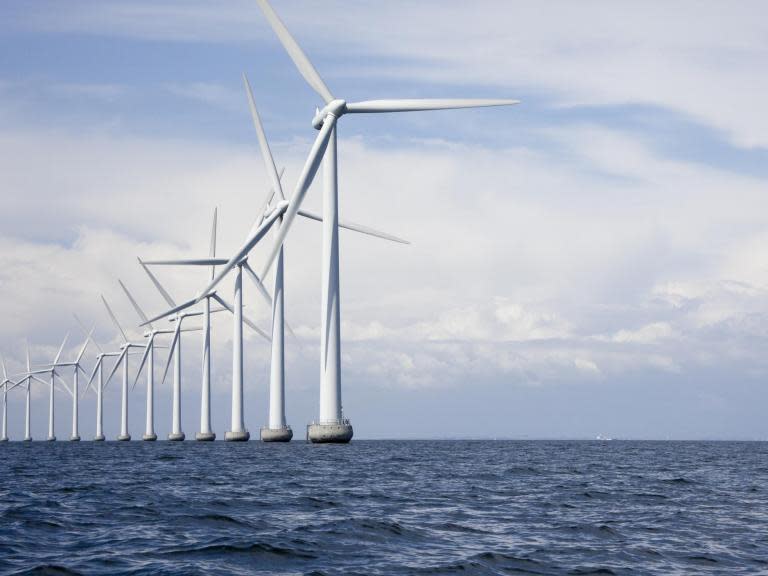Brexit: Losing energy links to Europe after no-deal will cost UK more than £2bn every year, experts warn
A no-deal Brexit could cost the UK £2.2bn every year as the network connecting the nation’s electricity supply with its European neighbours would no longer function effectively.
Environmental think tank Green Alliance issued the warning as Britain’s future clean power supply looked uncertain following a string of failed nuclear power projects.
With Japanese firm Hitachi pulling out of the planned Wylfa plant in Wales, the UK now faces a “nuclear gap” of about 15 per cent in its future electricity supply.
Environmental groups say the gap can be plugged with renewable energy, and business secretary Greg Clark acknowledged the tumbling price of wind power was making it a more desirable option than nuclear.
However, concerns still remain around how variable power supplies, such as wind and solar, can provide the grid with reliable power.
One way around this problem would be to invest in networks that span multiple countries, meaning when the wind is not blowing in Britain energy can be provided from somewhere else.
Such a network would also provide a market for the country’s renewable electricity at times of surplus. In 2017, energy trading across borders brought £700m into UK markets.
Despite these benefits, and projects in the pipeline to link the UK up with Belgium and Norway, Britain remains one of the least connected countries in Europe.
Green Alliance estimates that doubling current interconnection within the next two years and – in doing so – importing cheaper power from Europe, could save consumers £1bn a year.
However, this future is under threat as departing the EU will complicate the exchange of electricity between nations.
“The economics will get affected in a no-deal Brexit scenario, in the sense that there will be inefficient sharing of electricity across orders,” Chaitanya Kumar, senior policy adviser at Green Alliance told The Independent.
While the physical infrastructure for sharing electricity will remain, this added complication will likely rack up significant costs for UK consumers.
“No-deal doesn’t mean you’ll suddenly snap all the interconnected wires,” said Mr Kumar.
“The wires will still exist, we will still keep trading … [but] we will be trading on ineffective, inefficient terms.”
While the UK’s climate ambitions are immediately threatened by the failed nuclear plans, Mr Kumar noted that they can only be guaranteed if existing alternatives are scaled up.
Luke Clark from trade body RenewableUK said it is vital that the government secures a long-term arrangement for power trading with other European countries as Britain exits the EU.
“This is vital for Northern Ireland, in particular, as it forms part of a single power market with the Republic of Ireland,” he said.
A spokesperson from the Department for Business, Energy and Industrial Strategy said Brexit would not have any implications for the country’s energy supply.
“We’re committed to using renewables, storage, interconnectors, new nuclear and more to deliver a secure and dynamic energy market at the least possible cost for consumers,” they said.

 Yahoo News
Yahoo News 

